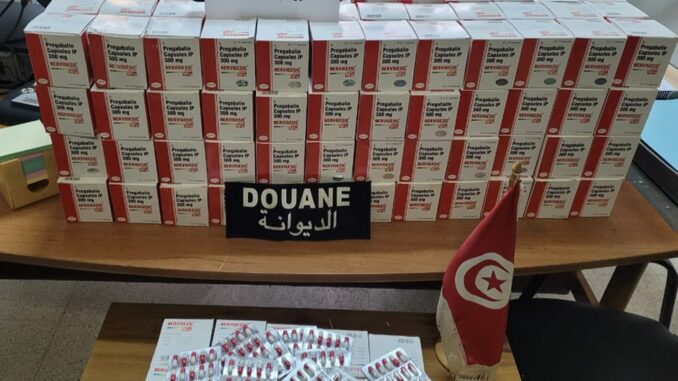
Tunisia is grappling with an unprecedented surge in drug trafficking, as security forces report record-breaking seizures that reveal the scale and sophistication of criminal networks operating within the country.
The latest operation, conducted at the end of August 2025, exemplifies this escalation: authorities confiscated 370,000 ecstasy tablets, 12 kilograms of cocaine, 13 vehicles, a motorcycle, and nearly 550,000 dinars in a single coordinated operation.
These figures reflect a dramatic transformation in Tunisia’s criminal landscape.
A series of high-profile operations in 2025 has cemented the country’s role as both a transit hub and an emerging market for illicit substances.
In April, Tunisian authorities conducted the largest seizure in the nation’s history, intercepting more than a million ecstasy pills valued at around €12 million and dismantling a major international network.
In July, another operation resulted in the seizure of 43 kilograms of cocaine, hidden in 39 plates weighing 42,929 grams, intercepted in a truck near Skhira and estimated at over 12.8 million dinars.
Customs services reported additional seizures in August, including 42 kilograms of cocaine in Sfax and 36 kilograms of cannabis at the port of La Goulette. Since the start of the year, authorities have intercepted more than 58 kilograms of cocaine, 154 kilograms of cannabis, and hundreds of thousands of synthetic tablets, which remain the primary illicit product in circulation.
The port of La Goulette, north of Tunis, has emerged as a central hub for drug trafficking. Authorities there foiled multiple high-scale operations, including the recent interception of 370,000 ecstasy tablets and 12 kilograms of cocaine on a ferry operated by the Tunisian Navigation Company (CTN).
Investigations indicate an increase in the complexity of criminal organizations, which employ luxury vehicles, large sums of cash, and meticulously planned distribution networks targeting schools and universities.
Colonel-Major Chokri Jebri, spokesperson for the General Directorate of Customs, highlighted a growing domestic demand, particularly among young people, signalling Tunisia’s shift from a transit country to a significant consumer market.
In response, Tunisian authorities have intensified coordination between the Ben Arous Central Anti-Drug Brigade, the General Directorate of Customs, and specialized units.
While recent months have seen impressive results, the challenge remains formidable. Each dismantled network exposes increasingly sophisticated organizations, with 14 suspects arrested in the latest operation and 15 others still at large, underscoring the scale of the trafficking threat facing the country.



